📄Global Settings "Other Names" Tabs
This article covers the "Other Names" tabs within Global Settings.
Overview
This tab allows for further System configuration with additional Reporting and Security options
Prerequisites
- To access Global Settings, the applicable Operator Privileges will need to be enabled
- System Setup: "Access Venue, Stores & Tills" Flag
- System Setup: "Maintain Global Settings" Flag
- Operator Maintenance 'General' Tab
"Other Names" Tab
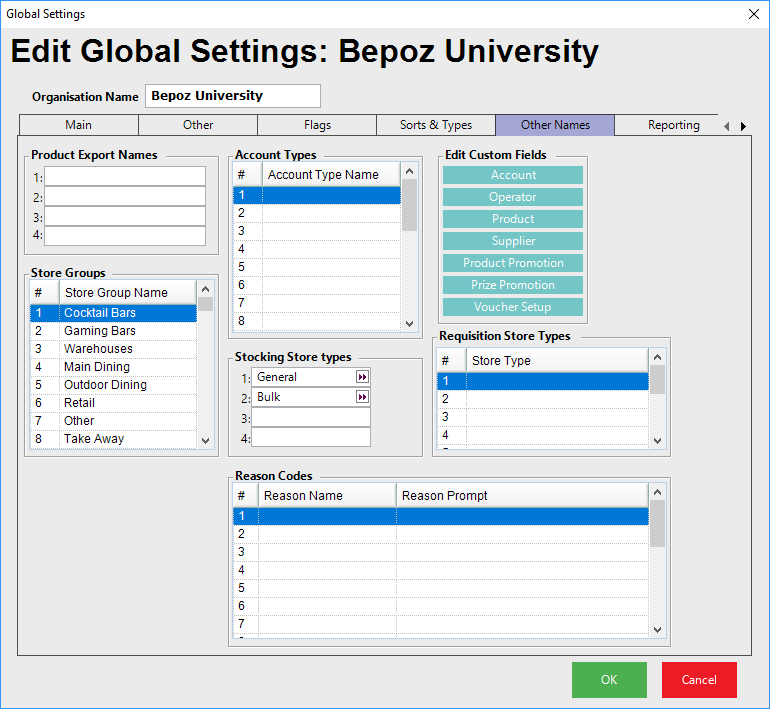
Product Export Names
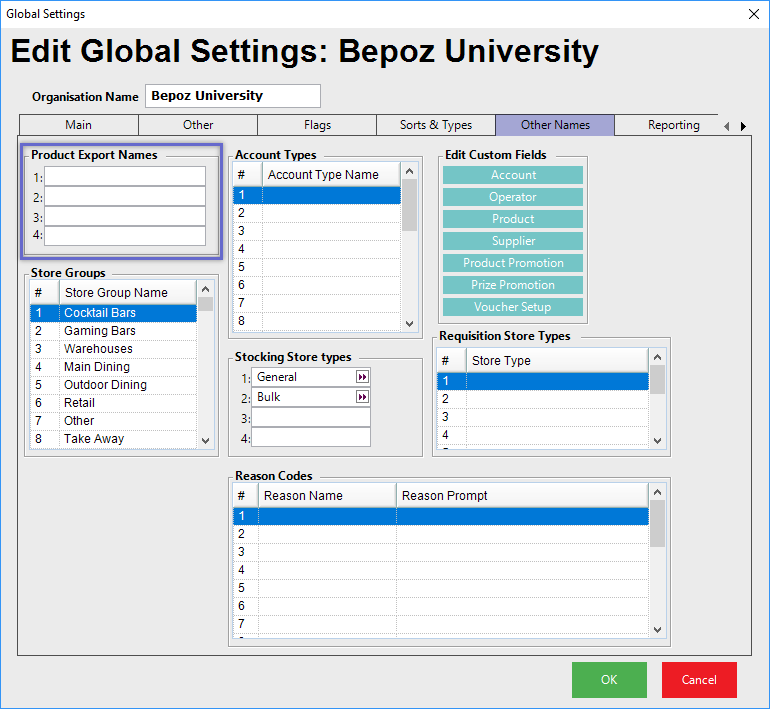
- These 4 settings allow for setting the names for the fields that appear on the Product record to be named as desired
- These could be absolutely anything at all but could be the location in the Store or Warehouse or the country, region and city of the origin of the product
- In addition, the Product Export Names can be further mapped to individual Products in the Product "Product Settings" Tab
Store Groups
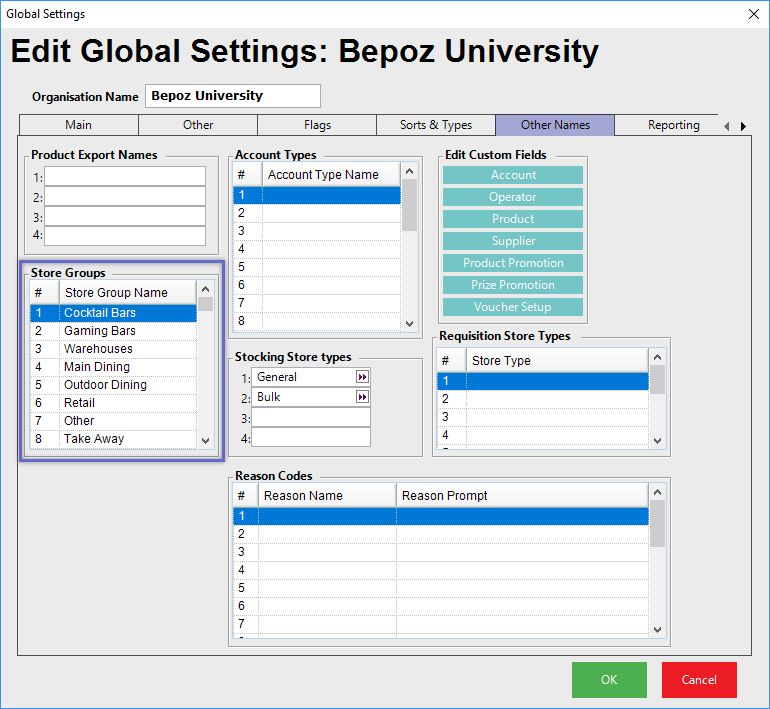
- The Store Group Names are defined to allow for stores of the same type to be grouped together in reporting
- There are 50 Store Group Names and when they are set, the option to assign the Store to the correct group is made at the Store dialogue of VS&T
- This is used to group like-Stores for reporting where there are options to report by Store Groups as well as Tills, Stores, Venues etc.
- When used in conjunction with Operator settings such as View/Edit Stores and/or Use Till Allowed Stores, an Operator can be limited to access a specific Store Group for the respective components; e.g., a Cocktail Bar Manager could be granted access to only a Store Group of all of the Organization's Cocktail Bars while being prohibited from Viewing, Editing, or using Tills in Stores belonging to any other Store Groups
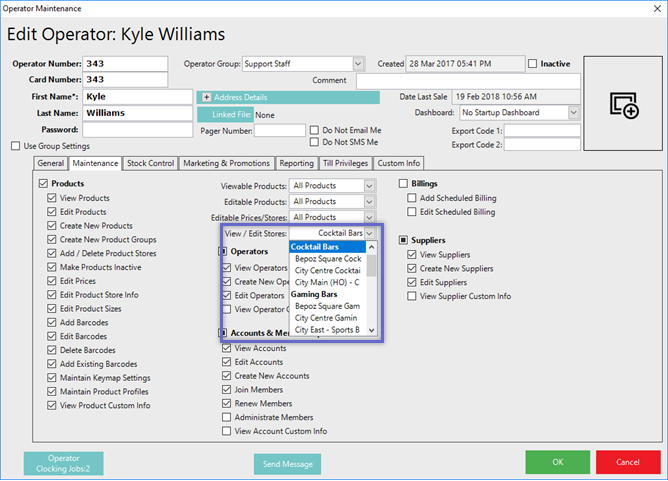
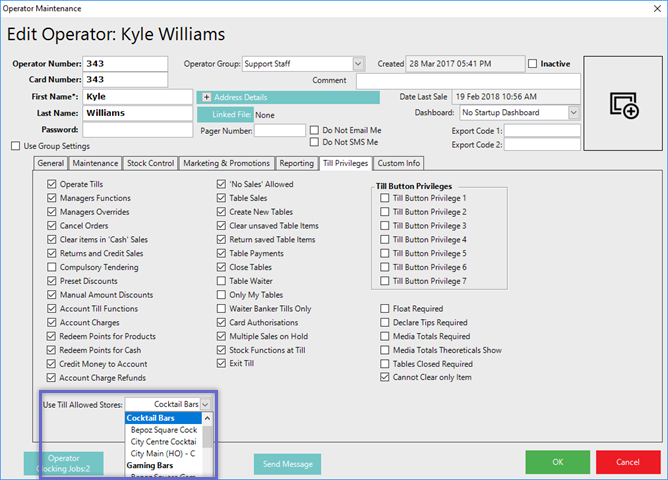
Account Types
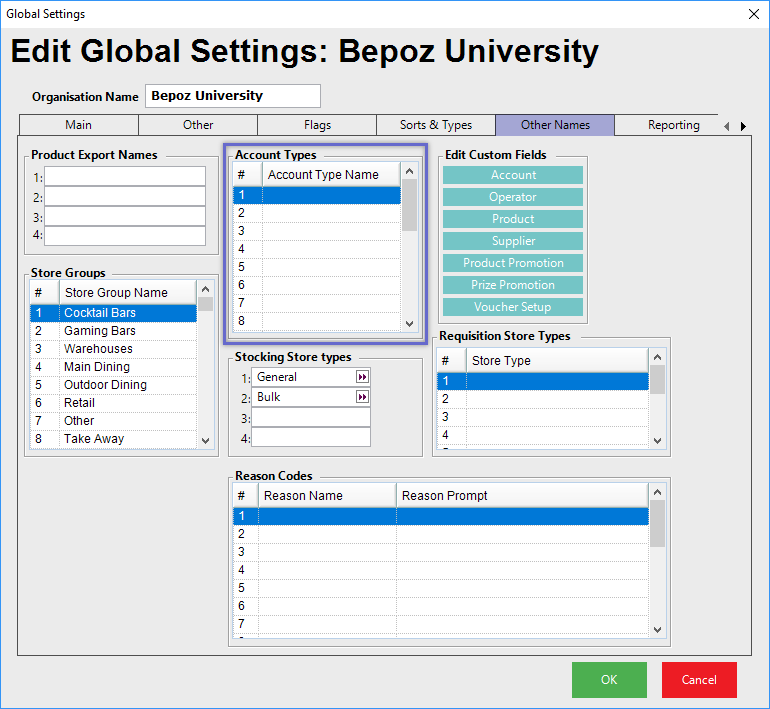
- This is a parallel grouping structure to the Account List grouping structure for Accounts
- So an Account appears in its group structure as per the List and also appears in one of these groupings if required
Stocking Store Types
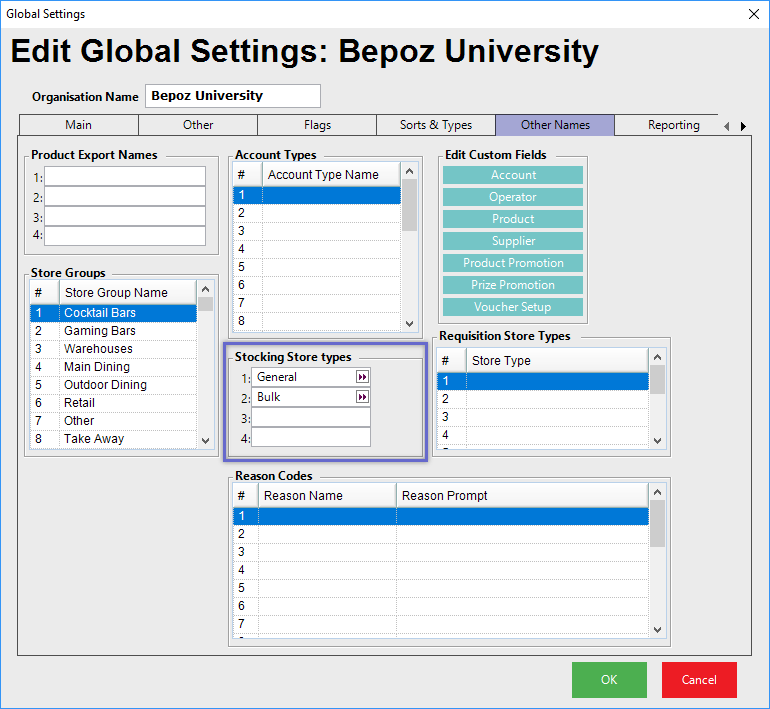
- Store Type Names are used where there is more than one storage location for Stock Sold from Stores from which the System deducts the Stock at the time of the Sale
- So, a Product assigned to a subsequent Store Type would directly deduct Stock from the designated Store for that Store Type as defined in the Store setting of the setup option
- An example is where Stock Sold at the till is deducted directly from a separate or remote Store from which the customer collects the Stock or in a bar where beverages in bulk containers such as kegs have inventory directly deducted from them while they are actually in a different Store from the till
Reason Codes
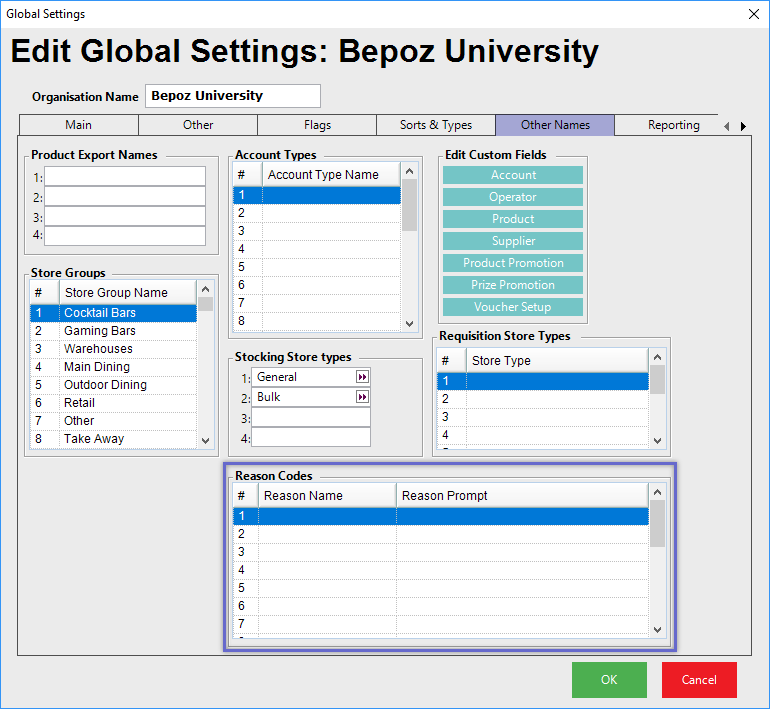
- Reason Codes may be set to be required to complete certain functions at SmartPOS Workstations
- This may be if a Transaction is Canceled, Refunded or a Discount is given
- These Reason Codes are reported in Till Summaries, Operator Summaries and Product Summaries
- The flags to set when they are required are in the Venue Setup
Edit Custom Fields
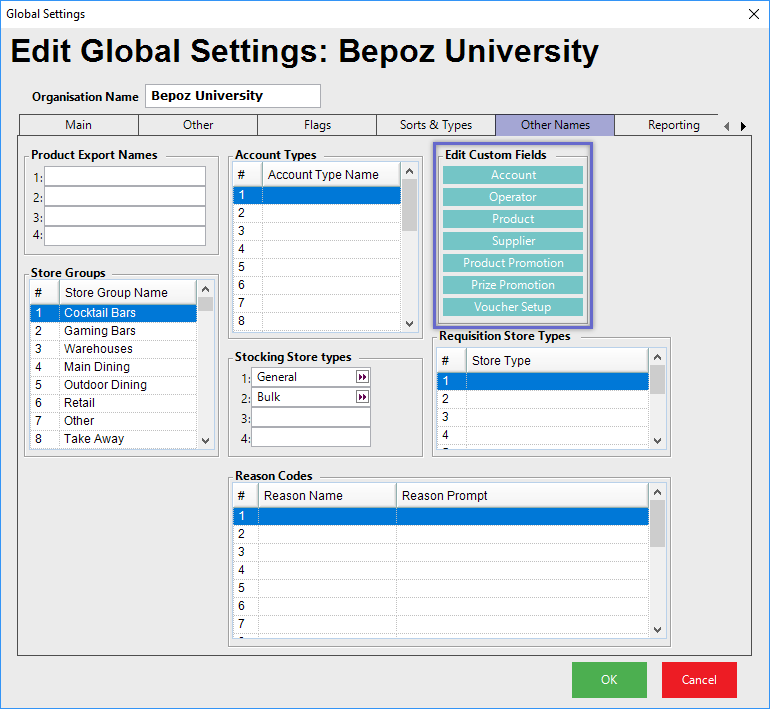
- There are a number of BackOffice components which can utilize Custom Fields - meaning that aside from the hardcoded configuration options, they can have additional fields set up as required by the Organization
- Flag fields, Number fields, Date fields and Text fields can be set up for reporting and filtering purposes
- To access and edit Custom Fields, click on the button for the desired component which will open a Custom Fields Maintenance window
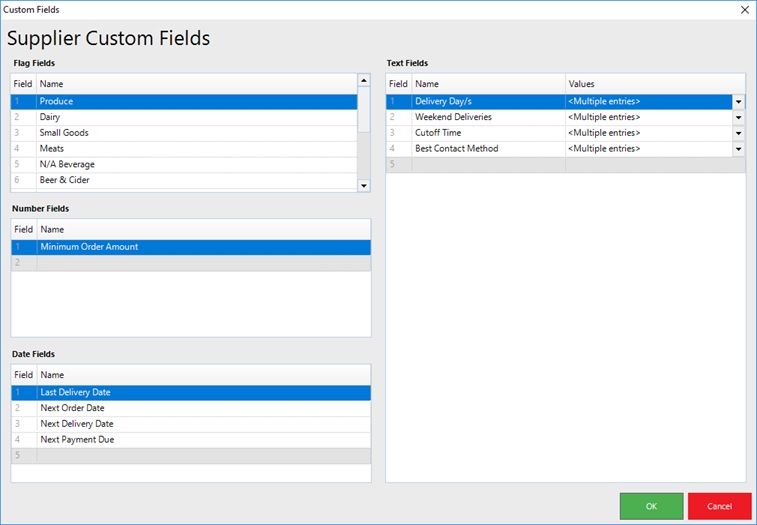
Requisition Store Types
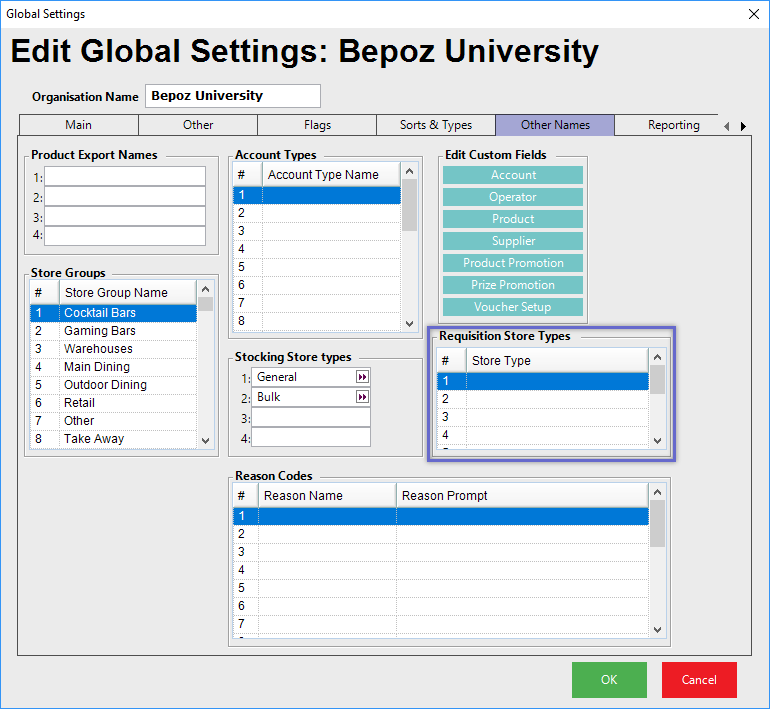
- When using Requisitions and Requisitioning Stock from multiple Stocking Locations, individual Products can be sourced from different places such as a Central Warehouse, Kitchen, or Beer Room
- This section allows for creating up to eight (8) Requisition Store Types to be selected from when setting up individual Stores
